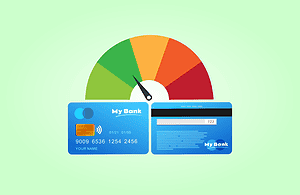Finance
How to Use Financial Data to Improve Your Credit Score
Your credit score is important and acts like a report card for your finances. It can affect many areas of your life, including when you want to get approved for loans or rent a home. If you want to improve your credit score, you may wonder how to do that. The good news is that you can take control of your credit score by understanding how your spending habits affect it.
Every time you spend your money on something, this information goes to your credit report. When you pay bills on time, how much credit you use and how long you have had your credit accounts; all of these factors influence your credit score. Paying bills on time is important, but keeping your credit card balances low also matters a lot.
In order to improve your credit score, it is important to understand which of your actions have the biggest impact. There are many online tools that can help you check your credit score. However, you may not understand what the numbers mean. This is where a professional accountant can help. Visit this website to schedule an appointment today.
What affects your credit score?
If you want to improve your credit score, it is important to understand what affects it. FICO, a popular credit scoring system, considers five main things when calculating your score:
- Your payment history (35%): This is the most important factor. Paying your bills on time helps your score.
- The amount you owe (30%): This shows how much debt you have. Keeping your debt low is good for your score.
- How long you have had credit (15%): The longer you have used credit, the better it looks.
- New credit (10%): Opening too many new credit accounts at once can lower your score.
- Your credit mix (10%): Having different types of credit, like credit cards and loans, can help your score.
How to use your financial data to improve your credit
Your credit report does not give a whole picture of your finances. Other information, such as the amount of money in your bank account or your spending habits can tell how responsible you are with your money.
For example:
- When you have a steady amount of savings and avoid going below zero, it is considered good credit behavior.
- When you pay your bills on time, such as for utilities and subscriptions, it shows that you manage your money well.
Some financial technology (fintech) companies can help you add this extra information to your credit profile. However, some of these services may charge a fee.
How you can improve your credit score
Now that you understand how your financial data can impact your credit score, it is time to understand how you can boost it.
One important step is to manage your credit utilization ratio. This means using only a small part of your available credit. Experts suggest keeping your usage below 30%, but people with top credit scores usually keep it even lower—around 10% or less.
Another helpful tip is to set up automatic bill payments. This way, you won’t miss any payment deadlines. Your payment history has the biggest effect on your score.
Also, make it a habit to check your credit report regularly. Sometimes, errors appear on your report, and these can hurt your score. If you find a mistake, report it right away.
How alternative financial data can help you
Lenders also look at other financial data to see how you handle. This includes the following:
- If you can keep a steady amount of savings.
- If you regularly add to your savings.
- If you pay bills on time.
Boost your credit score today!
Your credit score can be very important for your financial future. Book your consultation now and start your journey to a better score.






